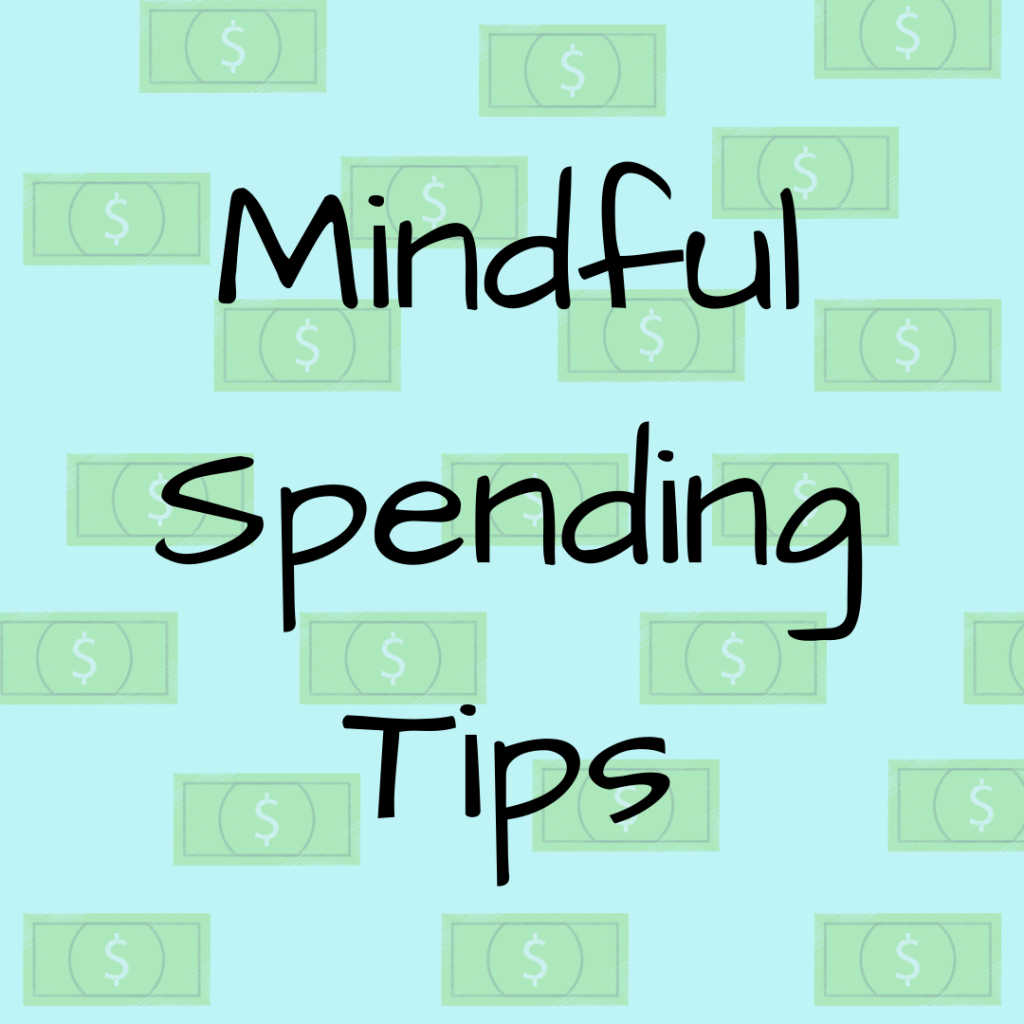If you’re reading this, then you read the title “Mindful Spending Tips”; And you read the title correctly: YOU are going to learn how to save money just by being more mindful. That’s it! I’m all for simplicity.
When you mind your pennies, your dollars take care of themselves…”
-YOU
Repeat it with me: “WHEN I MIND MY PENNIES, MY DOLLARS WILL TAKE CARE OF THEMSELVES.”
CONGRATULATIONS!! You’re off to a fantastic start. You’ve just taken the first step toward learning how to save money. I say that as a preface to a few things we’re going to cover: first is mindful spending. We’ve just begun by repeating a powerful money mantra to ourselves by bringing to mind that every spending decision be it significant, meaningful, and planned out down to small, casual, and compulsive impacts future budget and savings.
Second, save wisely: to know how to start investing is first to understand how to save money. To know how to save money is to set yourself up for stock market investing even if you classify yourself as new to investing.
Finally, invest in self to invest for wealth: smart spending leads to smart saving. Smart saving allows for smart investing. And smart is the new sexy, so smart investments are its hot new accessory!! Let us begin, oh wise ones…
MINDFUL SPENDING TIPS
Ahh, what a time to be alive, am’I’right: we can save our debit/credit card info on all of our connected devices (desktop, laptop, tablet, smartphone) so that we don’t even have to pull out those cards to punch in their numbers when buying stuff online anymore. Most mobile apps have the same capability (at least the ones I have downloaded on my phone. And in-store they’ve made it so that if I touch the card to the point of sale device I’ve made the purchase!!
Boy, this makes my routine shopping quick, convenient, and easy (cue the infomercial music). When I need detergent for laundry, toilet paper for toilet papery things, and groceries to practice my Master Chef skills, “quick, convenient, and easy” are 3 of my favorite things. Absolute. Favorite.
But alas, the numbers don’t lie, my people: impulse buys are steadily increasing, and that is online, mobile, and in-store. The downside to such advanced technology is that it has also made impulse buying quick, convenient, and straightforward. When I don’t need another pair of shoes, when I don’t need the newest smartphone out, and when I don’t need to have food delivered (because I don’t feel like trying to be Master Chef tonight), quick, convenient, and easy are 3 of my arch nemeses (cue the sinister laughter).

MORE ON MINDFULNESS TIPS
I say all that to say this: know your weaknesses and be mindful of them. Mine are shoes. And ordering in (or eating out.) And sometimes wanting a new smartphone because (Lawd help me) mine is now and ancient year-and-a-half old.
Here’s the good part though: when I don’t buy another pair of shoes, when I don’t order in (again), and when I don’t talk myself into another piece of tech, I know that on the backend I have an opportunity to put that money to use for future long-term benefit. The long-term benefit being the ability to put those saved funds in an investment tool (which we’ll discuss in a later piece.)
Pro-tip, BTW: removing credit/debit card info from your devices can also be a way to curb your spending – because of our laziness, we won’t want to get up and grab our cards every time we want to purchase something. Viola instant cash saved! Take a moment to think (go ahead – I won’t look at your thinking face): can you identify your weaknesses? Can you identify a few of your most recent impulse purchases??

SAVE WISELY
In today’s world, every action is a transaction. To elaborate, everything you do has a cost associated with it. As an example, let us consider a morning routine. If you wake up and the first thing you do when your feet hit the floor is turn on the lights, turn on your coffee pot, and jump in the shower, then you are creating transactions that have costs associated with them.
There is a cost associated with the electricity needed to light your space. Don’t forget, there is a cost associated with the quality, strength, and taste of the coffee in your coffee pot. There is a cost associated with having warm water to shower with. Even though you aren’t swiping your plastic or handing anyone cash during these transactions, you are spending money.
STOP SPENDING MONEY
Now yes, there are things we can’t do without food, clothing, and shelter would widely be considered by most as necessities. If I figure out how to live without food, clothing, and shelter, you’ll be the first to know, I promise. And individually we all have the things we would classify as necessities (hot water is one of mine: I cannot take a cold shower no matter how hot it will be when I get outside – more on that later.) For some, it is their morning coffee; for others, it’s able to take a nice hot shower.
In any case, there are ways to reduce the costs of having and keeping your necessities. It starts with being able to be mindful of the use of your essentials. Citing myself as an example regarding hot showers, I know that I don’t need to brush my teeth in the shower if all I’ll be doing is standing there in the boiling water, letting it run. So, my logic leads me to brush my teeth in the sink and making sure not to leave the water running while I’m doing it. Just my simple example; What’s yours? Do you think you can come up with three??

INVEST IN SELF TO INVEST FOR WEALTH WHEN LEARNING MINDFUL SPENDING TIPS
I once had a manager say to me, “the first bill to pay is to the 401K.” I’m not sure if it was meant to be a nursery rhyme or not (or maybe he thought he could rap), but as soon as it graced my ears, I understood it: invest in self to invest for wealth. At that time, the firm we both worked for also matched our contributions up to 3%. This meant that if we contributed 3% of each paycheck to our 401K’s, our company matched that amount in the account. That 3% just doubled to 6% — FREE MONEY.
For most of us, this is the first and easiest way we start our investing journey. To keep with the application of the lesson, there are many ways to save that come with bonuses. Traditional banks and their digital alternatives often give cash just for opening a savings account with them. Two birds, one stone. You get to start an account that will pay you interest for saving, as well as offering bonuses for choosing them to hold your money. When searching for a new savings account, be sure to do your research on which accounts come with the highest interest rate returns.
We hope these mindful spending tips have been informative, informational, and inspiring. Before you go, we’d like to leave you with something to ponder upon until next time. If you are conscious about every one of your pennies today, how do you think it would affect the number of dollars you’d have in a year? Three years? Five years? Ten?? Thanks for being here with us. We hope you’ve enjoyed this as much as we have enjoyed putting this together for you. Stay tuned for more…



These are some great tips to save money/spend smarter. Thank you!
Aww, Thank you!
I have my own statement to help me – four simple words:
DO I NEED IT??
Yes!!! I love this.
I needed to read this! I’m a horrible saver and impulse buyer. I do want to save, desperately! Thank you for sharing, I’ll be pinning this.
Such a great tip to take credit cards and apps off your phone. It makes it so easy to spend when you can just click a button. I’m going to put that in place now. Deleting!